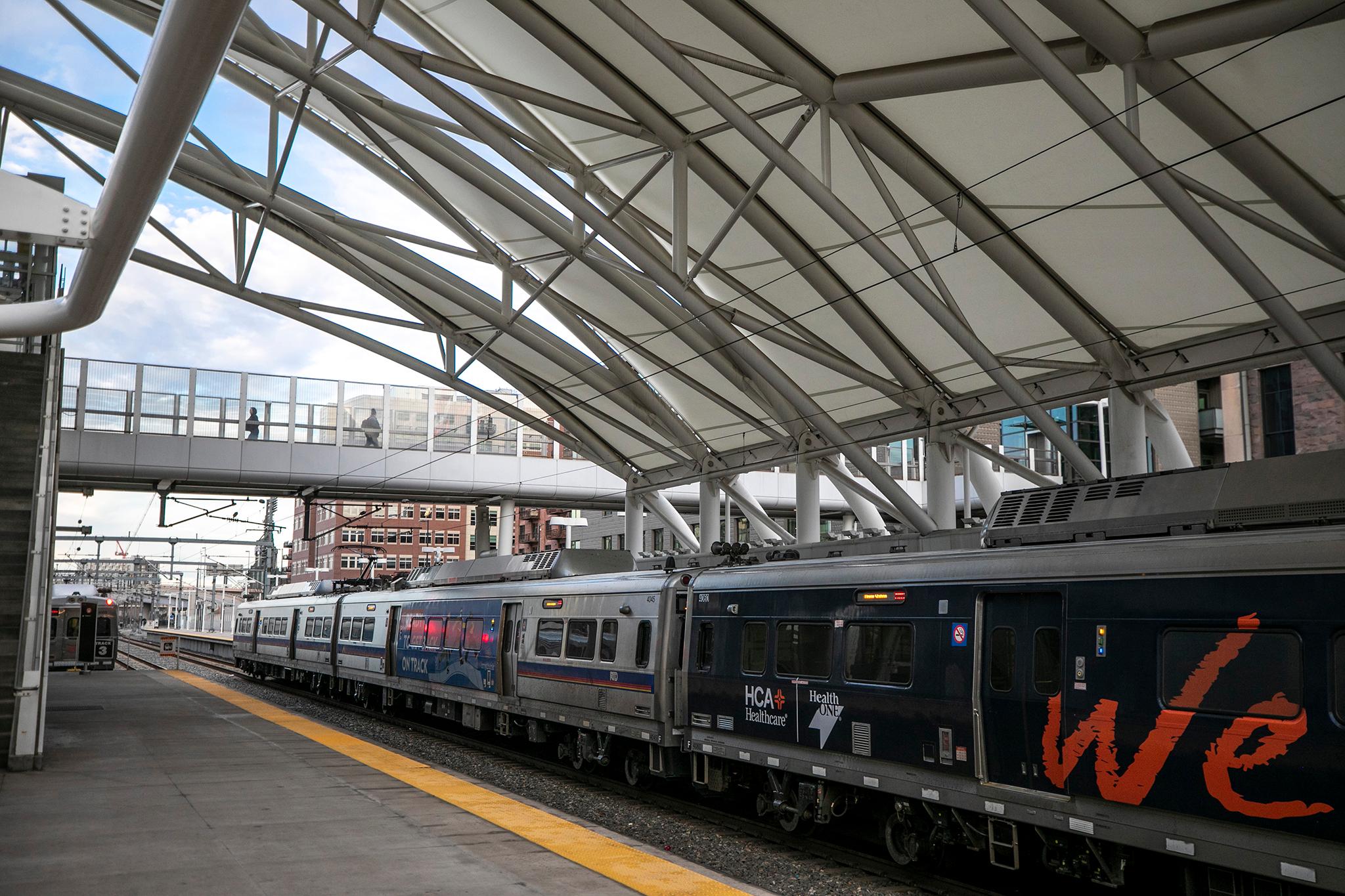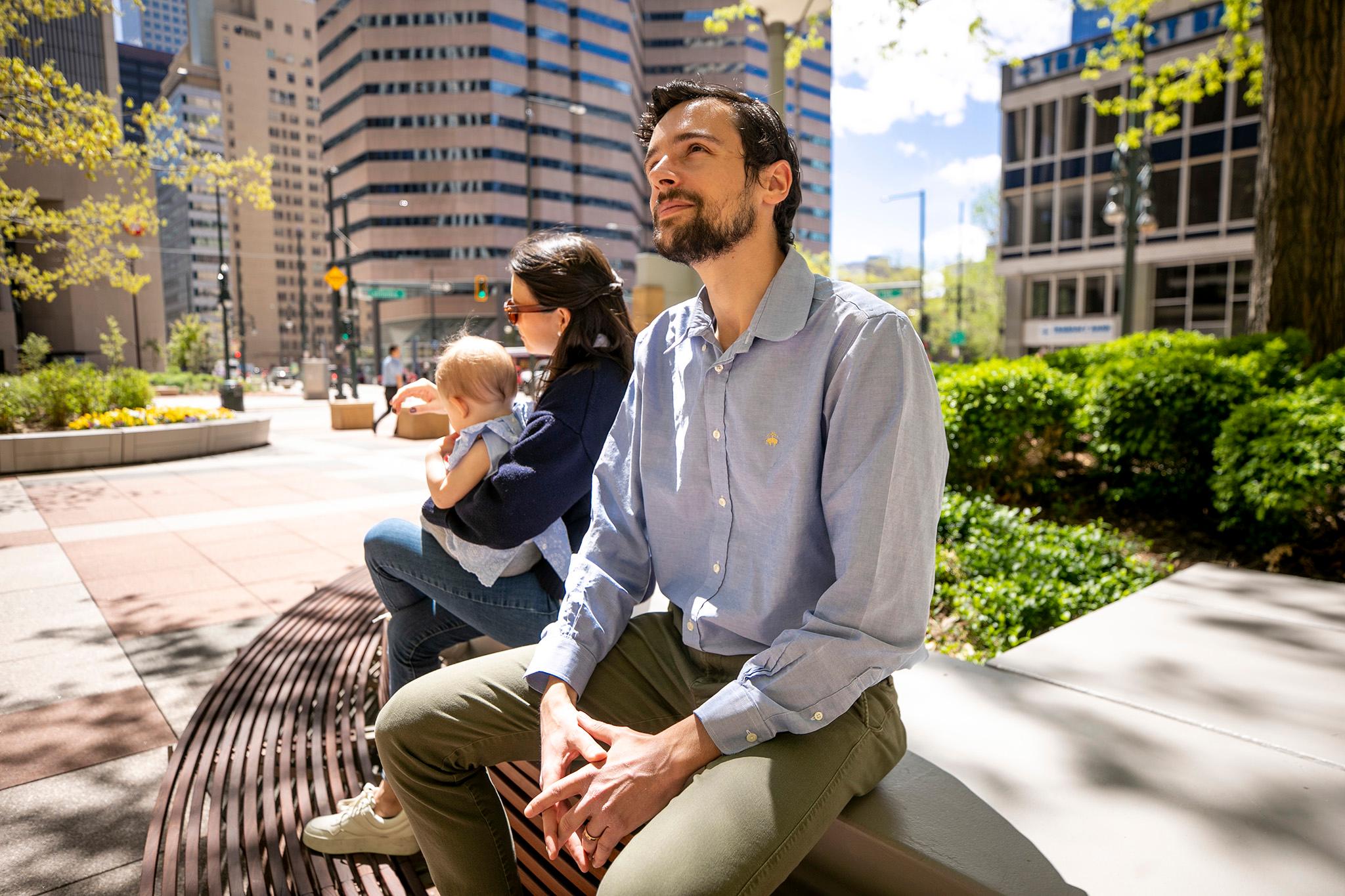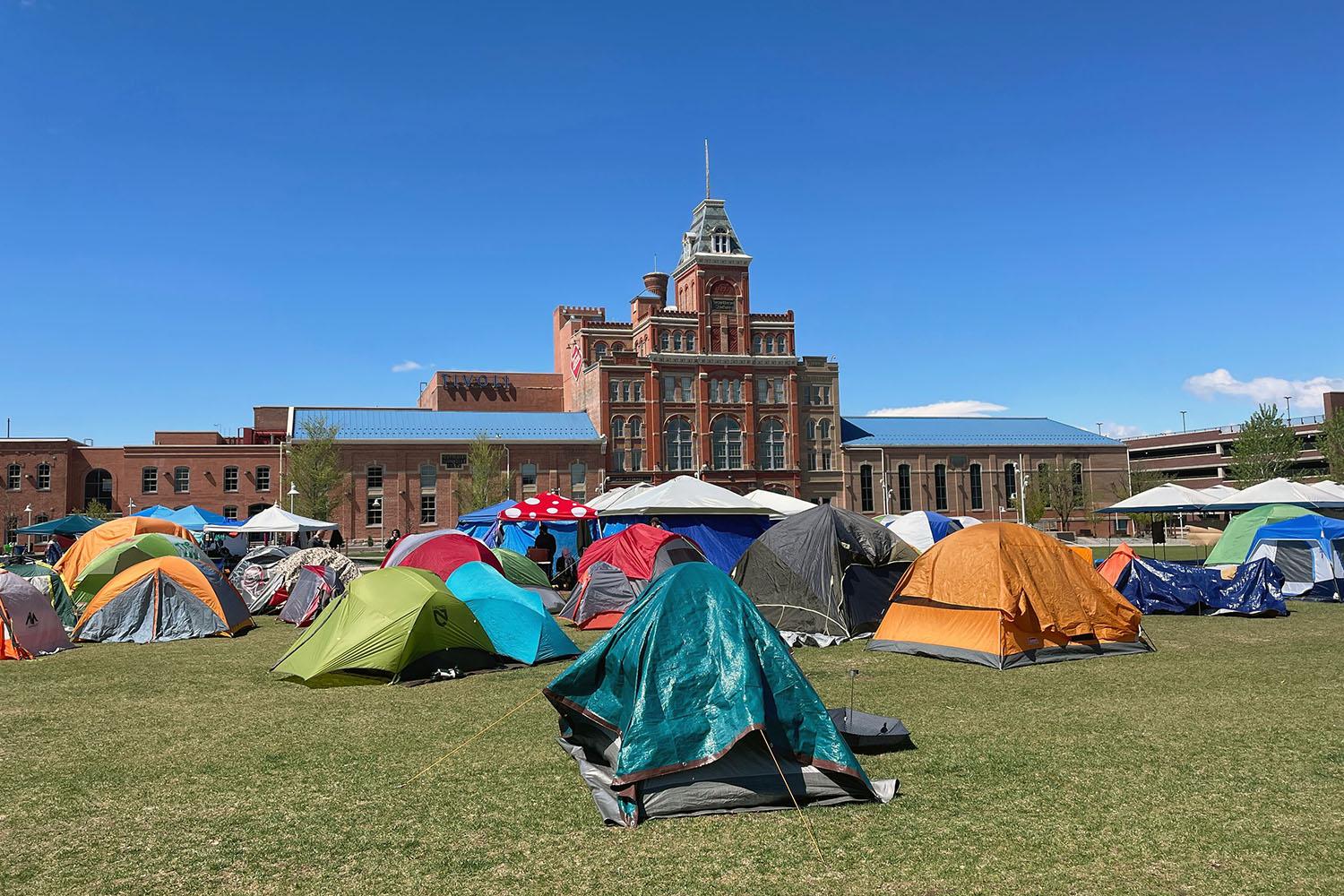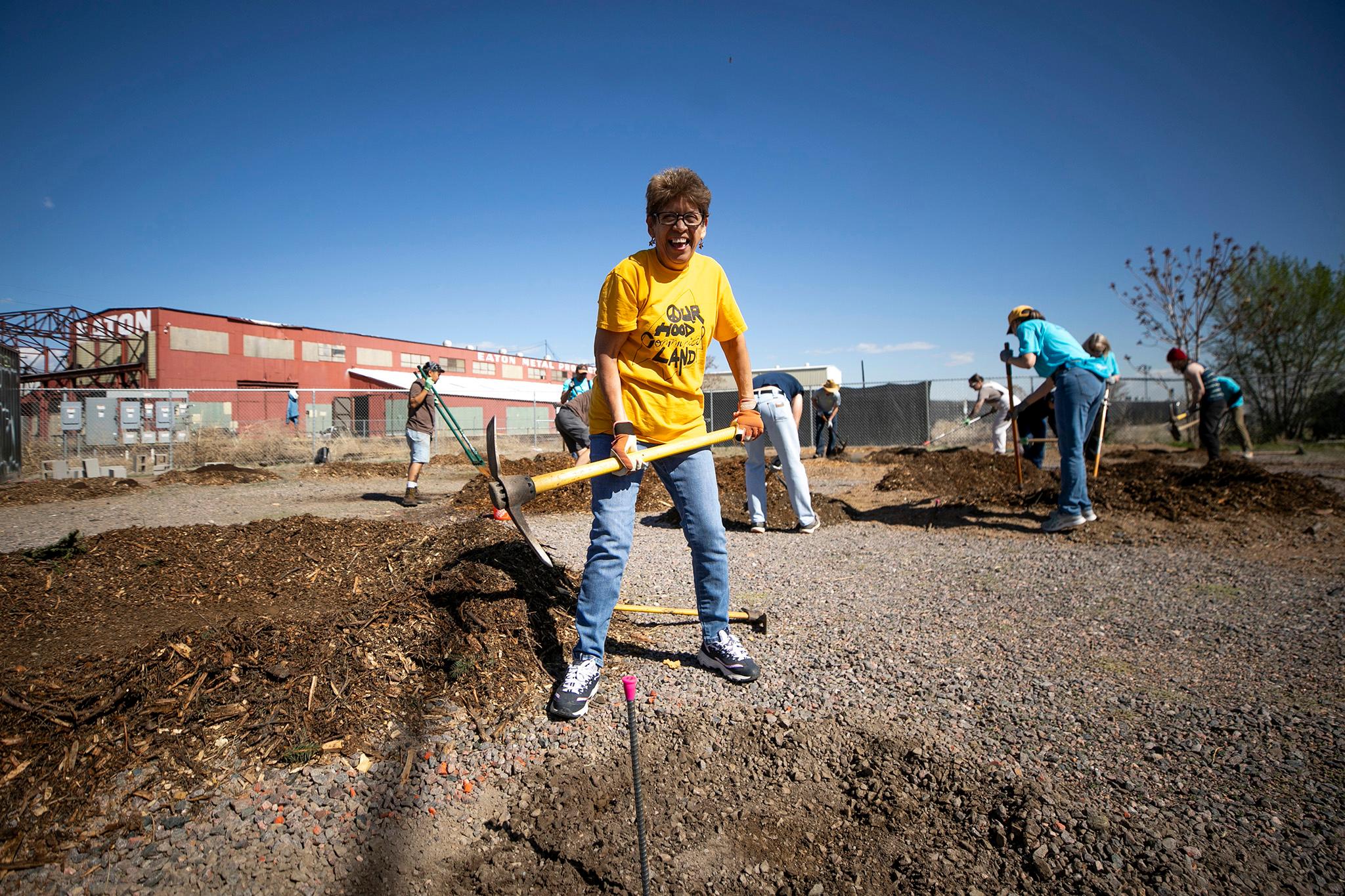The Regional Transportation District (RTD) is adding 24-hour security starting May 5, in response to concerns from employees and customers about safety.
Earlier this year, RTD said it planned to double its police force by the summer. Its force has grown from 19 people in 2022 to 61 officers currently, with an expected total of 119 in the next few months. In March the agency introduced a pilot program keeping elevator doors open while at rest at a handful of stations as part of an effort to “limit illegal activities.”
In addition to growing its police force, the agency said it plans to add six mental health clinicians and five homeless outreach coordinators by the end of the year, who will partner with transit police.
“We know that problems can occur at any time, so this is another step toward meeting the goal of creating a welcoming transit environment 24/7, 365 days a year,” said Deputy Chief Glyn Horn in a statement Monday.
In 2020, the agency moved to expand its own force from 10 people while moving away from private, contracted security. That push came after a private security guard beat a passenger waiting at Union Station. The goal at the time was to hit 50 officers by 2025; now, the agency plans to hit more than 100 in 2024.
While RTD has limited overnight service, the agency said the overnight officers will focus on places like Union Station when staff start early morning shifts.
RTD officials and staff have cited safety concerns as an issue in recruiting enough drivers, something the agency has struggled with in recent years and which makes maintaining and expanding service a challenge. RTD is currently adding safety barriers in buses to protect drivers from riders, which are “engineered to withstand blunt force objects,” according to RTD.
Other security efforts from RTD have faced pushback. In 2023 the agency moved to ban people from riding perpetually, something critics said targeted people experiencing homelessness. The board later approved an amended version of the code of conduct that did not include the ban, but which gave police more power to suspend “chronic violators” of RTD rules.












